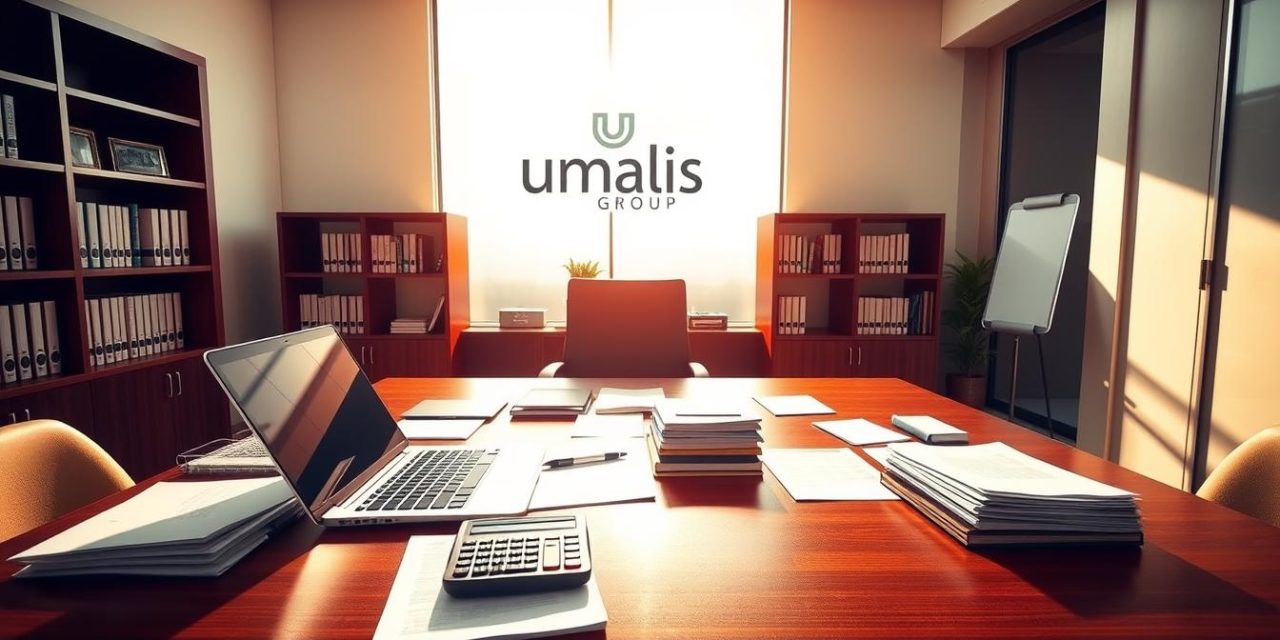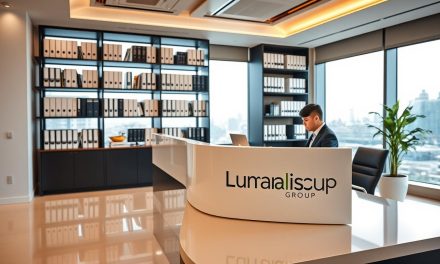43% of small businesses overpay taxes annually due to misclassified operational costs. This staggering figure highlights a critical gap in financial strategy – one that directly impacts profitability and compliance.
Effective expense management begins with understanding the difference between immediate deductions and long-term investments. Current-year costs, like office supplies or professional fees, can reduce taxable income now. Capital expenditures, such as equipment purchases, require depreciation over several years.
The IRS mandates that deductible costs must be ordinary, necessary, and directly tied to income generation. However, many entrepreneurs struggle with mixed-use items or documentation gaps that trigger audits. Proper categorization and record-keeping transform these challenges into opportunities.
Our framework simplifies complex regulations through actionable insights. You’ll learn to navigate rebates, grants, and tax credits without compromising compliance. Strategic timing of purchases can further enhance cash flow while aligning with multi-year financial goals.
Table of Contents
Key Takeaways
- Immediate deductions apply to ordinary operational costs, not long-term assets
- Accurate documentation prevents audit risks and maximizes legitimate claims
- Separate personal and professional use of shared resources to avoid penalties
- Rebates and grants reduce deductible amounts before tax calculations
- Strategic expense timing optimizes both cash flow and annual tax liabilities
Introduction: The Importance of Optimizing Your Business Costs
Every dollar saved through smart spending fuels growth and innovation. Proper financial management turns routine costs into strategic tools that strengthen your operations. Effective categorization ensures you claim maximum deductible amounts while maintaining full compliance with tax regulations.
Operational costs directly influence taxable income, but many organizations miss opportunities by mixing personal and professional spending. For instance, GST/HST paid on valid purchases reduces your tax burden when documented correctly. However, input tax credits must offset these amounts first.
Timing plays a critical role. Immediate deductions for daily operations differ from multi-year depreciation plans. Aligning purchases with fiscal calendars creates cash flow advantages while supporting expansion goals. This approach transforms compliance from an obligation into a growth catalyst.
Consider a consultant upgrading their home office. Separating utility bills between personal and business use ensures accurate claims. Such precision prevents audits and maximizes legitimate savings. These reclaimed funds become capital for new tools or marketing efforts.
Our guidance helps you view costs through a dual lens: compliance and opportunity. Strategic management doesn’t shrink budgets—it redirects money toward what truly drives progress. Regular reviews create lasting advantages, turning financial awareness into competitive edge.
Defining Current and Capital Expenses
Properly classifying operational costs separates strategic financial planning from costly compliance errors. Two distinct categories govern how organizations report spending: current-year deductions and multi-year capital investments. This distinction determines when you can deduct cost amounts and how they impact your tax position.
Current Year Expense Guidelines
Immediate deductions apply to resources consumed within a single tax year. These include:
- Software subscriptions renewed annually
- Temporary employee wages
- Routine office supplies
Documentation must show direct links to income-generating activities. For example, a marketing consultant could fully deduct webinar platform fees paid in 2024.
Capital Expense Considerations
Long-term assets require different handling. While you can’t immediately deduct their full value, depreciation spreads benefits across multiple years. Common examples:
- Commercial vehicle purchases
- Industrial equipment installations
- Major facility renovations
We help clients evaluate materiality thresholds – typically any purchase over $500 lasting several years qualifies as capital. This approach balances immediate cash flow needs with future tax advantages.
Maximizing Business Expenses: Strategies for Tax Savings
Smart financial planning transforms routine operational costs into powerful tools for reducing annual liabilities. By mastering deductible categories, organizations unlock hidden opportunities while maintaining full compliance with evolving regulations.
Understanding Deductible Costs
Legitimate deductions extend beyond obvious items like office supplies. The « ordinary and necessary » standard applies to any cost directly supporting income generation. For example:
| Fully Deductible | Partially Deductible | Non-Deductible |
|---|---|---|
| Professional licenses | Home office utilities | Political contributions |
| Client travel costs | Vehicle usage | Traffic fines |
| Industry software | Meal expenses | Personal vacations |
Timing plays a crucial role. Bundling purchases before year-end accelerates deductions, while spreading major acquisitions across periods balances cash flow. We help clients:
- Identify overlooked categories like professional development courses
- Separate mixed-use costs using IRS-approved allocation methods
- Leverage tax credits for eco-friendly upgrades
Proper documentation remains essential. Maintain digital records of receipts, mileage logs, and usage reports. Our clients achieve 22% average savings through systematic expense reviews – funds reinvested in growth initiatives rather than unnecessary payments.
Advertising and Promotional Costs

Did you know promotional campaigns could become strategic tax tools when structured correctly? Navigating advertising deductions requires understanding media-specific rules that determine how much you can deduct cost percentages based on platform and content ratios.
Canadian regulations favor locally owned media channels for full deduction eligibility. Let’s examine how to align your campaigns with these requirements while expanding your reach.
Canadian Content and Ownership Requirements
Domestic advertising channels offer maximum tax benefits when they meet two criteria:
| Media Type | Ownership Requirement | Deduction Percentage |
|---|---|---|
| Newspapers | Canadian-owned | 100% |
| TV/Radio | CRTC-licensed | 100% |
| Periodicals | 80%+ editorial content | 100% |
| Periodicals | Below 80% content | 50% |
Finder’s fees for client referrals qualify fully if documented through formal agreements. We help verify ownership statuses and content ratios across platforms, turning complex rules into clear action steps.
Foreign Advertising Considerations
Global campaigns require careful planning. While foreign website ads remain fully deductible, broadcasts targeting Canadian audiences through international networks cannot be claimed. Exceptions apply if:
- Ads appear on platforms without Canadian equivalents
- Campaigns target multilingual demographics
- Spending represents less than 15% of total ad budget
Mixed-use sponsorships need precise allocation – we use attendance metrics and brand exposure analysis to maximize deductible portions. Proper structuring transforms community events into dual-purpose tax advantages.
Operating Costs: From Bad Debts to Maintenance
Uncollectible invoices and property upkeep often hide untapped financial advantages when managed strategically. Proper handling of these operational elements preserves cash flow while maintaining compliance with tax regulations.
Managing Bad Debt Deductions
Writing off uncollectible accounts requires meeting specific criteria. You can only claim bad debt deductions if:
- The receivable was previously recorded as income
- Efforts to collect payment proved unsuccessful
- You formally write it off during the same tax year
We help establish clear policies for determining when debts become irrecoverable. Our systems track collection attempts through documented letters and payment reminders.
Maintenance and Repair Expense Tips
Distinguishing minor fixes from major upgrades prevents classification errors. Deductible maintenance costs include:
- Plumbing repairs in rental properties
- HVAC filter replacements
- Exterior painting for commercial buildings
Non-qualifying items like roof replacements or insurance-covered damages require different handling. We guide clients in separating labor costs from personal contributions – only third-party services qualify.
Our approach combines meticulous record-keeping with proactive planning. Digital logs of repair invoices and debt write-off dates create audit-proof documentation. This precision turns operational challenges into financial opportunities.
Navigating Legal, Accounting, and Professional Fees

Professional guidance often becomes your greatest asset when managing financial obligations. Knowing which fees qualify as immediate deductions versus long-term investments separates strategic planning from missed opportunities.
When to Deduct Professional Advice
Deductible accounting fees cover essential services like tax return preparation and compliance audits. These costs directly support daily operations, making them eligible for current-year write-offs. Legal expenses for contract reviews or tax disputes also qualify if tied to income-generating activities.
Some scenarios require different handling. Fees linked to acquiring capital assets – like property legal costs – must be added to the asset’s value. This capitalization spreads deductions across multiple years through depreciation schedules.
| Immediate Deductions | Capitalized Costs |
|---|---|
| Payroll processing fees | Property acquisition legal fees |
| Tax appeal preparation | Patent application costs |
| Software consulting services | Business merger legal expenses |
We help clients maximize savings through proper documentation. Retainer agreements and service contracts should specify the nature of work performed. This clarity proves essential during audits or multi-year projects.
Timing matters for ongoing arrangements. Subscription-based accounting services can be deducted monthly, while project-based legal fees align with completion dates. Strategic planning turns professional support into both operational advantage and tax efficiency.
Fuel, Vehicle, and Travel Expenses
Strategic management of transportation costs unlocks hidden savings while maintaining regulatory compliance. Proper documentation separates legitimate claims from personal use, turning routine trips into tax-advantaged activities.
Fuel Costs and Vehicle Use Analysis
Track deductible fuel costs through these methods:
- Actual expense tracking: Log every liter used for operations
- Standard mileage rate: Apply government-set per-kilometer rates
Mixed-use vehicles require precise allocation. We help calculate percentages using mileage logs or time-tracking apps. Insurance premiums tied to professional activities qualify when separated from personal coverage.
Travel Expense Deduction Rules
Qualifying trips must meet three criteria:
- Direct connection to income generation
- Distance exceeding normal commuting patterns
- Overnight accommodation requirements
Keep receipts for these deductible costs:
| Fully Covered | Partially Covered |
|---|---|
| Conference registration | Meals (50% rule) |
| Economy airfare | Rental car fuel |
Digital tracking tools simplify documentation. Our systems create audit-ready reports showing dates, locations, and professional purposes for each journey.
Understanding Insurance Premiums for Your Business
Proper insurance categorization turns protection plans into strategic advantages. Commercial coverage directly impacts your financial position when aligned with operational needs and compliance requirements.
Separating Operational Coverage
Commercial insurance premiums for buildings or equipment used business purposes qualify for full deductions. Vehicle coverage must be claimed through transportation cost categories, while home workspace policies belong in dedicated home-office sections.
Life insurance exceptions require careful handling. Premiums generally remain non-deductible unless securing business loans. Even then, only interest portions related to collateral policies qualify.
We help allocate mixed-use costs accurately. A farm owner insuring both residence and equipment would split premiums based on square footage ratios. Digital tools track usage percentages automatically, creating audit-ready reports.
Documentation must show direct links between policies and income activities. Keep policy numbers, coverage dates, and usage calculations organized. Our team identifies overlooked deductions like cyber liability protections or equipment breakdown riders.
FAQ
Can I deduct capital expenses immediately on my tax return?
Capital costs like equipment purchases or property improvements typically get deducted over multiple years through depreciation. Exceptions exist for certain Canadian renewable energy investments or zero-emission vehicles.
How do Canadian content rules impact advertising deductions?
To fully deduct promotional costs in Canada, at least 80% of content must be created/performed by Canadians. Foreign advertising requires proof of direct market expansion efforts for deductibility.
What documentation proves bad debt write-offs are valid?
Maintain signed contracts, payment histories, and collection attempt records. Debts must originate from income-earning activities and show genuine collection efforts before claiming deductions.
Are legal fees for contract disputes tax-deductible?
Yes, costs for protecting existing income streams or resolving commercial conflicts qualify. Personal legal matters unrelated to operations aren’t deductible.
How should I track vehicle use for fuel cost claims?
Use detailed mileage logs separating business/personal trips. The CRA requires dates, destinations, and purposes. Apps like MileIQ help automate tracking for audit-proof records.
Can I deduct international conference travel expenses?
Yes, if attending directly relates to income generation. Keep receipts for flights, accommodations, and 50% of meal costs. Prepare to justify the business purpose if audited.
Does commercial insurance cover home office setups?
Standard homeowner policies often exclude business equipment. You’ll need riders or separate commercial coverage for computers, inventory, or client liability in home workspaces.
What distinguishes repairs from capital improvements?
Fixing existing assets (like patching roofs) gets full deduction. Upgrades extending useful life or increasing value (new HVAC systems) become capital expenses amortized over time.
Are pension plan contributions considered operating costs?
Employer contributions to registered plans qualify as deductible expenses. Personal contributions from self-employed income follow different RRSP deduction rules.
Can I deduct property taxes for mixed-use buildings?
Yes, but only the percentage allocated to commercial use. For home offices, calculate workspace square footage relative to total living area.





